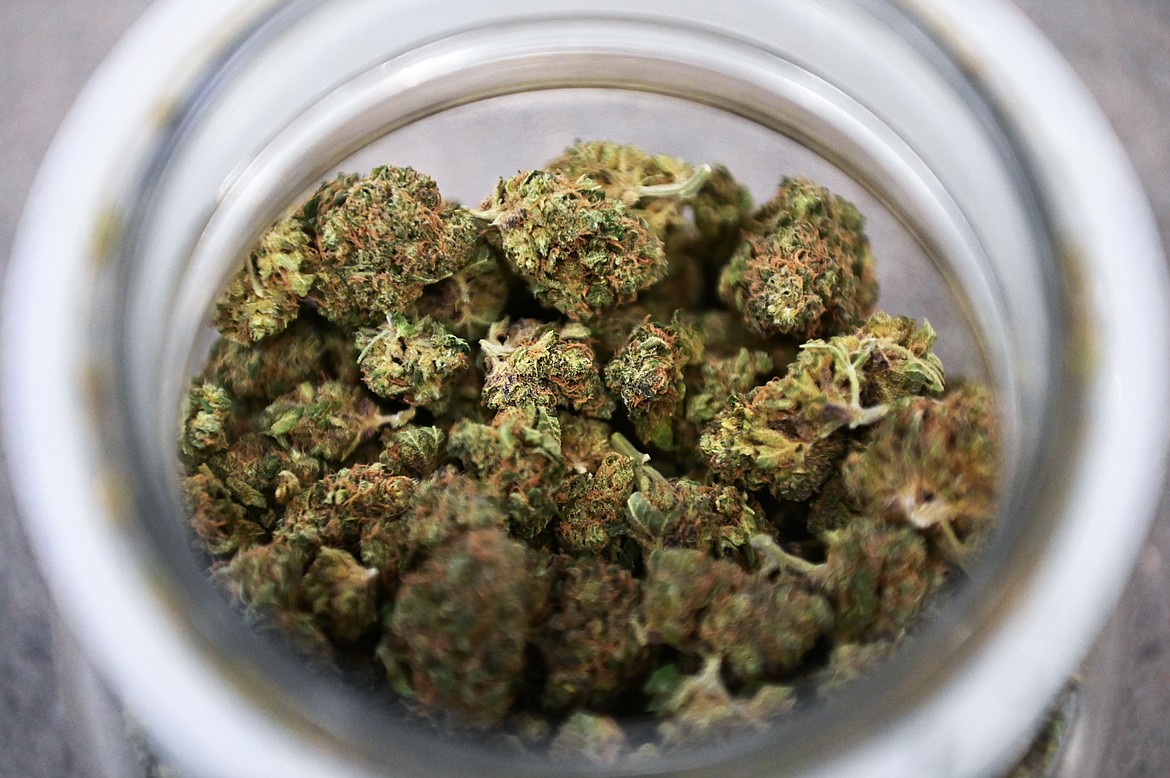Marijuana advertising bill hearing highlights confusion over existing law
A hearing this week on a bill to prohibit marijuana advertising revealed a wide gulf between understandings of the state’s current ad policy for the industry.
On Feb. 8, the House Business and Labor Committee met to consider House Bill 351, which would effectively ban most marijuana advertising in Montana. In its current form, the bill would prohibit a marijuana business from utilizing outdoor signage and billboards and any use of a dispensary’s brand name or logo in print, TV, radio, or sponsorship. In keeping with current law, HB 351 allows for one exception: listings in online directories.
The hearing illuminated a lack of agreement about whether existing law that prohibits the advertising of “marijuana and marijuana products” applies to a brand’s name and logo.
If passed, HB 351 would restrict Montana’s approximately 400 dispensaries’ ability to promote themselves, and prevent media organizations from selling ad space to cannabis businesses. Representatives of the cannabis industry contend that it would also impact customers’ ability to discern between businesses, result in fewer sales statewide, and generate less tax revenue for the state.
In Montana’s first year of recreational sales — which began on Jan. 1, 2022 — vendors sold $210 million of adult-use cannabis and nearly $94 million of medical marijuana. Collectively, those sales generated about $46 million in tax revenue for the state.
The committee heard testimony from two proponents of the bill, both representatives of the anti-recreational-marijuana organization Safe Montana. More than 20 people associated with the cannabis industry and media organizations spoke against it.
The hearing became dramatic as industry representatives accused the bill of infringing on their rights and potentially causing substantial damages to their businesses.
“We did not do a very good job of defining and including ‘brand’ [in the original bill],” sponsor Rep. Seekins-Crowe, R-Billings, told Montana Free Press after the hearing.
“This is what happens a lot of times going from writing the bills into rulemaking,” she added. “I don’t think it would’ve been such a problem if all of a sudden we didn’t see ads on bathroom stalls, on benches. Not just signs but sides of buildings painted.”
BRANDS VS. PRODUCTS
During the hearing, Seekins-Crowe framed the bill as a return to the intention of the 2020 voter initiative that legalized adult-use marijuana sales in Montana.
“In a sense, it is a clean-up bill. House Bill 351 basically is taking us back to what was promised to us in an initiative for recreational marijuana, and that was no advertising,” she said.
Yet opponents of the bill argued — and rules enacted by the Department of Revenue state — that the 2020 voter initiative, as well as the 2021 Legislature’s subsequent framework bill, House Bill 701 prohibit businesses only from advertising specific strains of marijuana or marijuana products, not the names and logos of the brands that sell them.
Department of Revenue rules distinguish between advertising a marijuana “brand,” i.e., a dispensary or business name, and advertising specific products.
That rule reads: “A licensee may promote its business and market its brand but may not advertise marijuana or marijuana products except in electronic advertising.”
The Department of Revenue’s Cannabis Control Division, which oversees the state’s marijuana programs, declined to provide comment for this story.
PROPONENTS CONTEND ADVERTISING IS A THREAT
The bill drew support from two representatives of Safe Montana: Steve Zabawa and Scott Reichner, a former state representative.
Both men framed existing marijuana advertising — including permitted listings in online directories — as a social detriment that will “grow more users.”
Zabawa further claimed that the Department of Revenue “did not have the right” to enact its current brand advertising rule.
OPPONENTS CITE BUSINESS AND ETHICAL CONCERNS
The bill’s opponents flagged a handful of concerns.
Many argued that it would hurt their bottom line, bolster an illicit market and reduce the state’s tax revenue from the lucrative industry. Others argued it infringed on their freedoms and First Amendment rights.
Pepper Petersen, president of the Montana Cannabis Guild, said he was “assured over and over again it’s marijuana products that we’re not going to be advertising” by lawmakers last session. “Obviously we want to let people know that if you’re going to buy marijuana you need to buy it at one of these licensed, regulated, legal shops.” He described HB 351 as a “cartel [illicit market] empowerment bill.”
Glenn Broughton, owner of Starrbuds dispensary in Missoula, noted that businesses have invested thousands of dollars in outdoor signage that the new law would force them to take down.
“You can’t even make this stuff up. This bill is nothing short of a takings,” he said.
Kate Cholewa, of the Montana Cannabis Industry Association, argued that the new policy would mostly hurt businesses that follow the rules.
“You can play whack-a-mole and the only people who suffer are people who follow the law anyway,” she said.
In a brief interview after the hearing, Seekins-Crowe reiterated that she’s open to suggestions from the industry. She further explained that she’s begun collaborating with her colleagues, including Rep. Katie Sullivan, D-Missoula, “so we can come up with a solution here that does work a lot better.”


